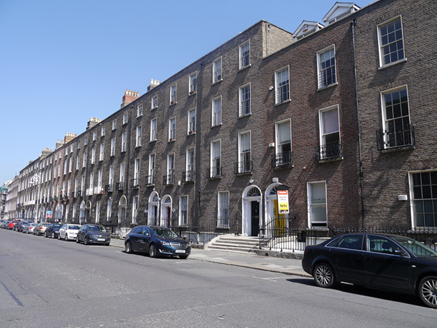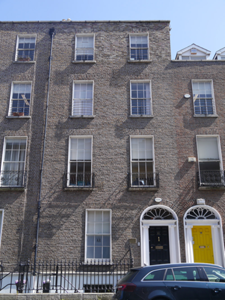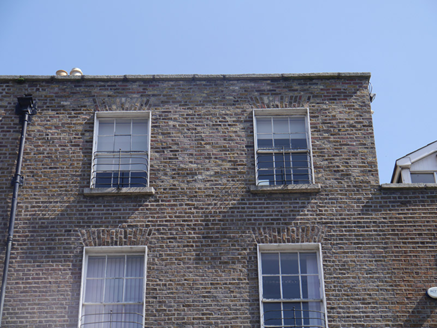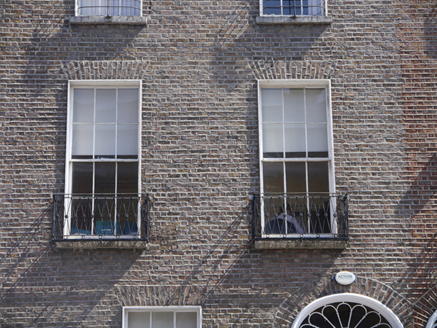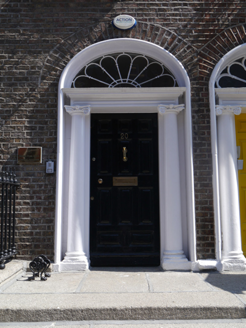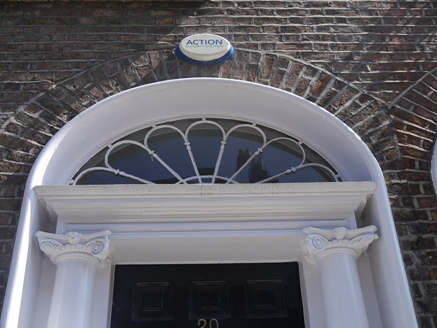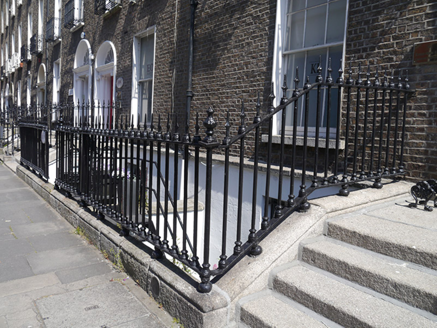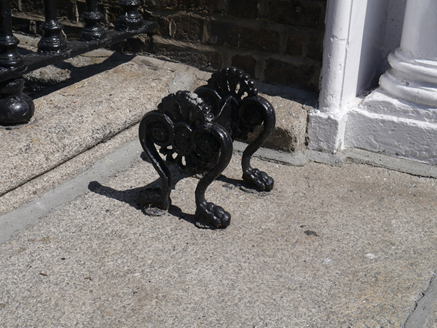Survey Data
Reg No
50100556
Rating
Regional
Categories of Special Interest
Architectural, Artistic
Original Use
House
In Use As
Office
Date
1815 - 1835
Coordinates
316930, 233328
Date Recorded
03/06/2016
Date Updated
--/--/--
Description
Attached two-bay four-storey former house over basement, built c. 1825 as one of pair with No. 19, having two-storey return to rear. Now in commercial office use. M-profile pitched slate roof, hipped to east end of front span, behind parapet with granite coping and parapet gutters. Brick chimneystack to party wall. Shared cast-iron downpipe and hopper. Brown brick walling laid in Flemish bond on granite plinth course over painted ruled-and-lined rendered basement walling. Square-headed window openings, diminishing in height to upper floors, with granite sills, patent reveals and brick voussoirs. Timber sliding sash windows, eight-over-four pane to basement and six-over-six pane elsewhere, some with cavetto horns. Decorative cast-iron balconettes to first floor, wrought-iron window-guards to top two floors and steel grille to basement. Rear elevation has apparently timber sash windows, three-over-three pane to top floor and six-over-six pane below, including round-headed stairs window to east bay. Elliptical-headed doorway with moulded surround, painted masonry doorcase having engaged columns with Scamozzian capitals supporting entablature with panelled frieze, decorative peacock's tail fanlight and eleven-panel timber door with brass furniture. Shared granite entrance platform with decorative cast-iron boot-scrape, accessed by five granite steps. Decorative spear-headed cast-iron railings on granite plinth enclosing basement area, latter accessed by cast-iron gate and mild-steel steps. Recent square-headed door and window beneath entrance platform. carparking and recent two-storey apartment block to rear of plots of Nos. 19-21.
Appraisal
A late Georgian house which appears to have been built as part of a group of six (Nos. 19-24) although Nos. 19-20 have an additional storey bringing them into line with the grander proportions of the terrace to the west. The front elevation exhibits well-balanced proportions and fenestration grading typical of the period, with the restrained façade enlivened by later cast-iron balconettes, an ornate boot-scrape, and a good doorcase with Scamozzian capitals and pretty fanlight. Mount Street Upper was erected between 1790 and 1834, the variations in the streetscape are indicative of the piecemeal nature of construction, the north side being notably less grand than the south. The terrace contributes strongly to the cohesive character of the street and the wider historic core of south Dublin city. The east end of the street is effectively terminated by St. Stephen's Church, creating an interesting centrepiece and terminating one of the key vistas of Georgian Dublin.
